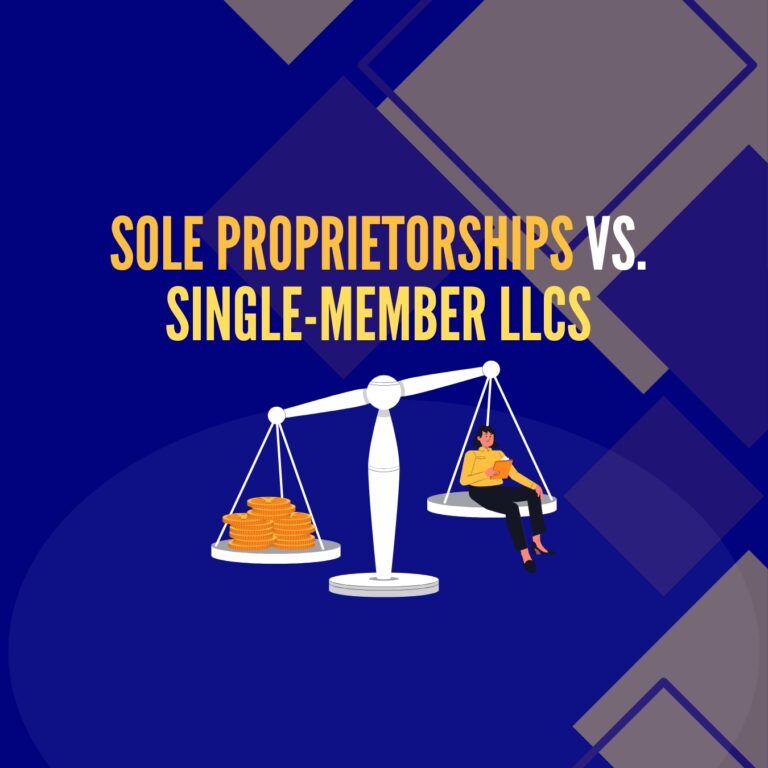Starting a Business in the U.S. Virgin Islands: Your Expert Guide to Success
The U.S. Virgin Islands (USVI) presents a remarkable opportunity for aspiring entrepreneurs and seasoned business owners alike. With its breathtaking natural beauty, strategic Caribbean location, and pro-business environment, the USVI is an ideal destination to establish a thriving enterprise. Boasting a strong tourism industry and significant economic incentives, the islands create a fertile ground for innovation and growth. This comprehensive guide offers you the expertise and insights needed to successfully launch your business in the USVI.
Step 1: Choose the Ideal Entity Type
Selecting the correct business entity is the cornerstone of your entrepreneurial journey. The structure you choose will shape your tax responsibilities, personal liability, and operational flexibility. Common business structures in the USVI include:
- Sole Proprietorship: Simplistic and suitable for small, single-owner ventures.
- Partnership: Tailored for businesses with two or more owners seeking shared responsibility.
- Corporation: Provides liability protection and a framework for larger-scale operations, albeit with increased compliance requirements.
- Limited Liability Company (LLC): A hybrid structure offering liability protection and operational flexibility.
To ensure alignment with your business goals, seek expert advice by contacting BIZ360 VI, Inc.—your trusted partner for business formation, compliance, and development in the U.S. Virgin Islands.
Step 2: Name and Register Your Business
Establishing your business identity begins with a unique and protected name. Register your business name with the USVI Division of Corporations and Trademarks to secure exclusivity and legal recognition for your brand. This step safeguards your intellectual property and solidifies your market presence.
Step 3: Obtain a Tax Identification Number
Obtaining a Tax Identification Number is a critical step in setting up your business operations in the USVI. In most cases, though not all, it is ideal to obtain one to streamline your business processes. The Employer Identification Number (EIN), issued by the Internal Revenue Service (IRS), serves as your business’s federal tax ID. It is essential for reporting taxes, opening a business bank account, hiring employees, and establishing credibility with vendors and partners. Applying for an EIN is straightforward and can be done online, ensuring your business complies with federal tax obligations from the outset.
Step 4: License Your Business
Acquiring the appropriate business license is essential. The Virgin Islands Department of Licensing and Consumer Affairs (DLCA) offers industry-specific licenses to ensure your operations meet regulatory standards. Additionally, confirm that all required permits for your license type and industry are obtained to avoid legal or operational setbacks.
Step 5: Comply with Local Regulations
Operating in the USVI demands adherence to key local regulations. These include:
- Zoning and Land Use Permits: Verify that your business location complies with zoning requirements.
- Health and Safety Standards: Vital for food service, healthcare, hospitality, and similar industries.
- Environmental Regulations: Especially critical for businesses with potential environmental impacts.
Step 6: Obtain a Business Bank Account
A dedicated business bank account is fundamental for managing your finances professionally. It simplifies accounting processes, enhances tax reporting accuracy, and instills trust among clients and partners.
Step 7: Secure Insurance Coverage
Protect your investment by obtaining commercial property and liability insurance. These policies safeguard against unforeseen damages and legal claims, ensuring your business’s longevity and resilience.
Step 8: Explore Funding Opportunities
While personal funding is a common starting point, additional financing options are available to accelerate growth:
- Small Business Loans: Accessible through local financial institutions and the USVI Economic Development Authority.
- Grants and Incentives: Government initiatives designed to support innovative and impactful ventures.
- Investors: Attract funding from local or international investors intrigued by your business concept.
Step 9: Build a Network
In the USVI, connections are invaluable. Strengthen your business prospects by joining local business organizations, attending industry events, and cultivating partnerships within the vibrant Virgin Islands business community. Networking provides insights, support, and collaborative opportunities.
Step 10: Hire Locally
Tap into the USVI’s skilled and diverse workforce. Hiring locally not only fortifies community ties but also demonstrates your commitment to the region’s development. Be diligent in adhering to labor laws, including minimum wage standards and employment regulations.
Step 11: Launch and Market Your Business
The culmination of your preparation is your business launch. Employ a strategic marketing approach to captivate your target audience:
- Digital Marketing: Harness the power of social media, search engine optimization, and targeted email campaigns.
- Local Advertising: Engage the community through radio, newspapers, and public announcements.
- Collaborative Partnerships: Expand your reach by aligning with complementary local businesses.
Most Importantly, Stay Compliant
Compliance is a continuous process. Regularly review local and federal regulations, renew licenses and permits on time, and stay informed about updates that could impact your business. A proactive approach to compliance safeguards your operations and reputation.
Starting a business in the U.S. Virgin Islands is more than an entrepreneurial endeavor; it’s an opportunity to thrive in a region that values innovation, community, and growth. With strategic planning, adherence to regulations, and a strong network, your business can flourish in this idyllic setting.
At BIZ360 VI, we specialize in transforming visions into realities. Whether you need help with business registration, compliance, or strategic growth, our team is here to guide you every step of the way. Call us at (340) 773-0946, visit our website at www.biz360vi.com, or email us at support@biz360vi.com. Let’s create your success story in the USVI, together!



